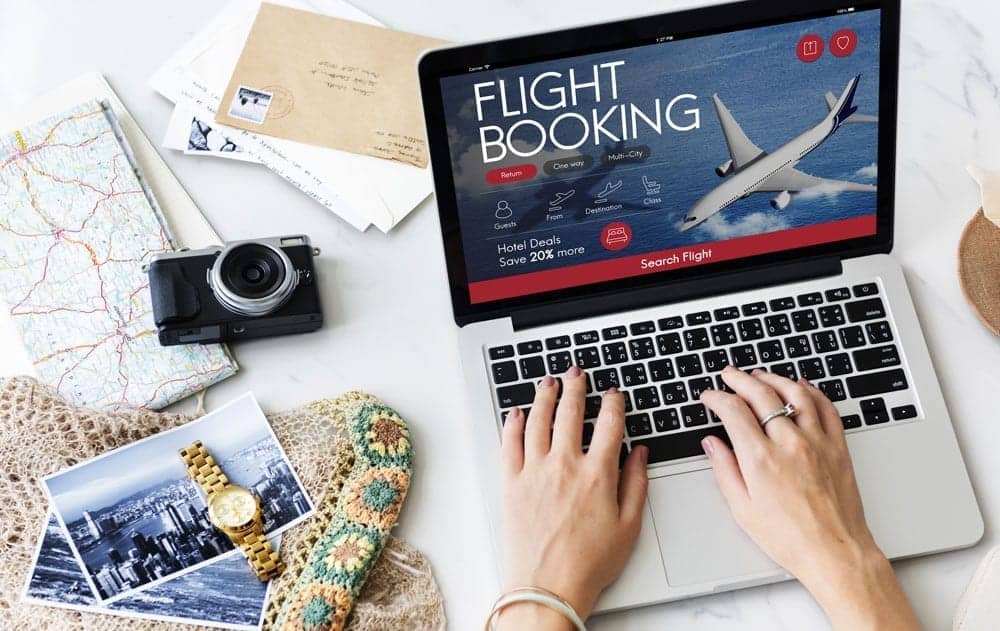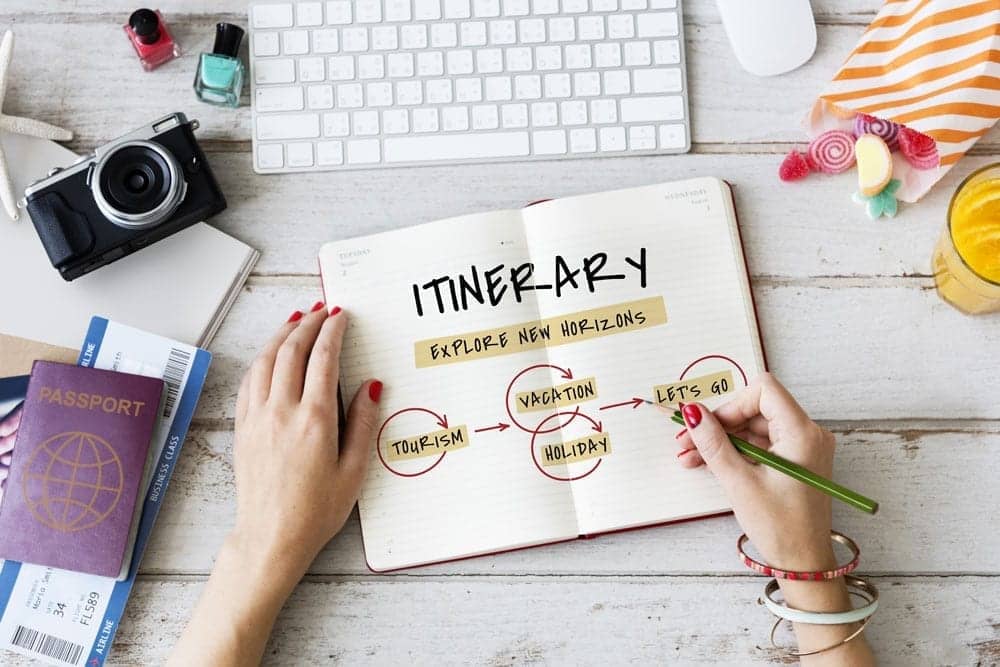We often think of holidays as ‘breaks’. They’re a chance for us to get away from the stress of the mundane, the constant demands imposed on us as parents and providers and employees.
But (as any veteran traveller knows) going away isn’t always the psychological antidote we hope for. The pressure, both financial and mental, of planning, booking and coordinating a trip can actually lead to something called ‘travel stress’.
This is where the combination of purchasing tickets, mapping routes, paying for accommodation, creating itineraries and making domestic arrangements culminates in a massive headache that can ruin your holiday and leave you feeling worse than before.
In this article, we’re going to break down eight tips for reducing travel stress, because we know there’s nothing worse than a getaway that doesn’t exceed your expectations. If you’re reading this during lockdown, don’t worry – most of these tips can be used in everyday life, too, so you won’t have to wait for the end of the coronavirus to start using them.
Let’s get into it.
1. Make sure you have enough time
Some people like to fastidiously plan every aspect of their journey, leaving nothing to chance. There’s absolutely nothing wrong with that, particularly if you’re trying to maximise your time. A tightly packed itinerary can still be deeply rewarding.
But here’s a tip: make sure you factor in ‘time padding’ to your plans. Life is full of the unexpected, especially when you’re in a foreign country, so don’t leave the bare minimum between activities. If you’re finishing up a tour at 9am, don’t book a train ticket for 9:30 just because Google told you it takes 25 minutes to get to the station. Tours can run overtime. Traffic is a global scourge. The kids might need a toilet stop.
By building additional time into your plans or itinerary, you can avoid rushing around and feeling panicked because you’re running late. Give yourself some legroom, take it easy, and enjoy yourself.
2. Book everything in advance

This might run counter to conventional wanderer wisdom of ‘taking life as it comes’, but, if we’re being honest, many of us don’t have spare time on holidays. Our precious days of annual leave are there to be spent adventurously and joyfully, not milling around looking for a hotel room or frantically scanning the Internet for last-minute deals.
By booking your flights, accommodation and activities well in advance, you’ll ensure you can stay where you want and do what you like. The further in advance you book, the higher availability.
This means there’s less stress during the planning/booking phase of your holiday, more time to hunt down bargains, and less chance of missing out because you left it too late.
3. Meditate

Whether something’s gone wrong, your fellow travellers are annoying you, or you just woke up in a bad mood, meditation is a great way to ground yourself and instil a sense of inner calm.
Many meditation experts recommend meditating in the morning because your mind is clear, you’re alert and awake, and you can set a positive tone for the day. Before you head out on a day of adventures (or a day of lounging at the beach), take 10 minutes to stabilise your thoughts and emotions.
If you’re staying at a Wyndham property, open-air spaces such as pools (as long as they’re nice and quiet), balconies or gardens are perfect for meditating.
4. Keep a positive mindset
Keeping a positive attitude goes hand-in-hand with meditation, because they both rely on us altering our perspectives on events, rather than letting events alter our perspectives. This is particularly important when we encounter unexpected situations which may affect or even ruin whatever carefully laid travel plans we had.
You can achieve a positive mindset in a lot of different ways, but, if you feel yourself becoming stressed or panicked while travelling, ask yourself two questions:
- Can I change the event/situation/thing that is causing me to feel this way?
If you can, then focus your energy into action. Otherwise, ask yourself this:
- Since I have no control over the situation, are my emotions helping me? Is feeling this way likely to contribute to a better outcome?
There will always be times where things we can’t change occur, and it’s necessary to accept them and move forward.
Let’s use an example. There’s a massive traffic jam, and you miss your flight.
One initial reaction might be frustration and extreme stress. Alternatively, we could look at it with a positive mindset. The plane has already departed (there’s nothing we can do to change that). We still need to return home, so a better use of our energy is to instead focus on finding homebound tickets that strike a balance between affordability and convenience. If we have to wait a few days, it will cost us more money, but, again, there’s nothing we can do about it, so we should instead concentrate on enjoying those additional few days in the country, rather than pointlessly stressing.
Remember, silver linings can emerge from the most unexpected situations.
5. Itineraries are just guides

A trap many travellers fall victim to is the concept of the ‘mandatory itinerary’. Just because you wrote something down six months ago when you were planning this trip doesn’t mean you have to do it.
Itineraries should be guides, not commandments. They’re there to provide a holiday roadmap, a compass to help you navigate the daunting experience of absorbing a foreign country in a few weeks or days.
That doesn’t mean you need to religiously adhere to them. Use them to maximise efficiency, but, if you have to, skip an activity, or add a more interesting one in. Don’t stress just because you’ve deviated from those perfectly-laid plans.
6. Exercise

Everyone knows exercise is good for you, both physically and mentally. The biggest way it helps relieve anxiety is through the release of endorphins, the ‘feel good’ hormone that makes us feel happy.
Interestingly, it also actively combats stress by producing neurohormones like norepinephrine, which cuts through our inability to think properly when stressed out. It also promotes greater synergy between our bodies’ central and sympathetic nervous systems, which improves our stress-coping abilities.
As a bonus, exercise also helps us sleep – and if you want to know more about the benefits of sleep and what you can do to maximise your shut-eye, check out our article, 6 Practical Tips for Sleeping Better While Travelling.
7. Essential oils

With aromatherapy on the rise, essential oils have become a popular way of instantly relieving stress and anxiety. They can be applied directly to the skin or inhaled (not the actual oil, just the smell) to promote feelings of relaxation.
Some of the best essential oils for inducing calm include lavender, rose, ylang ylang and chamomile.
8. Calming drinks

No, we’re not talking about alcohol here. There are a number of healthy teas, juices and other drinks which can help you both hydrate and feel calmer while travelling.
Green tea is one of the most popular. You probably know that this ancient Chinese drink has an amazing range of health benefits, but did you know that the presence of the amino acid L-theanine helps it actively promote calmness and sharpen concentration?
Another crowd favourite is valerian root tea, most popular as a pre-sleep beverage. Labelled ‘Nature’s Valium’, it enhances tranquillity with a range of compounds including valerenic acid, isovaleric acid, gamma-aminobutyric acid and a range of antioxidants.
Of course, we can’t go past coffee as the ultimate travel drink. If you’re reading this, chances are you’re a coffee-lover. For those dealing with early mornings, late nights, complex work or not enough time, a strong cuppa is a good solution. Caffeine blocks adenosine receptors, which helps reduce both acute and chronic stress.
Enjoy this article about how to reduce stress while travelling? Subscribe, and receive notifications when we publish new, exciting travel content.







